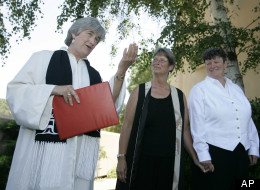Nome, Alaska, is known – when it’s known at all – for being the finish line for the famous Iditarod dogsled race, but apparently there isn’t a lot of money in that. Like many cities across the country, Nome finds itself hard-pressed to make ends meet. After struggling yet again to come up with the money to pay for the town’s humble services, Finance Director Julie Liew proposed an idea that has so far seemed almost impossible in the United States: Why not tax the churches?
Surprisingly, the city’s officials couldn’t come up with a good objection and the proposal moved forward.
According to KNOM:
“You get rid of the sales tax exemption, most of the time these other exemptions aren’t given—we’re a very nice city [to do] it,” Council member Matt Culley said. “When we sit down at budget time, [with] the numbers to look at, if we want to donate that [money back to nonprofits], the money can go all back in … but we have control over it now, as opposed to it going whatever direction that we have it going now.”
The “direction” they have it going now is that roughly $300,000 is left in the hands of churches and non-profits. It’s a lot of money being left behind for a city that is facing annual deficits and deep cuts to town services. The city is quick to point out that this new plan doesn’t mean that the money would be gone forever, if there is a surplus the money can go back to the organizations. Instead, it would be treated much like how the government treats income tax – collected up front and given back based on need and availability.
Should the ordinance pass, it would represent the first tax on churches of its kind in the United States. Traditionally, religious groups have gotten far-ranging leeway in regards to tax exemptions. So much in fact that a Washington Post investigation in 2013 found that taxpayers spend about $82.5 billion each year to make up for the free rides churches enjoy.





